On November 7, the 6th World Laureates Forum hosted a significant event composed of five sub-forums—the World Laureates Zero Carbon Forum. This forum consists of a keynote forum and four thematic forums, with He Kebin, an academician of the Chinese Academy of Engineering, dean of the Institute for Carbon Neutrality at Tsinghua University, serving as the forum chair.
After the hottest summer on record, global scientists gathered at the World Laureates Zero Carbon Forum with a heightened sense of urgency and new research advancements. More colleagues joined, including several winners of the energy sector’s “Nobel Prize,” the Enel Prize, who made their debut at the World Laureates Forum, collectively showcasing their work at the Zero Carbon Forum.
As one of the most prestigious signature forums of the World Laureates Forum, this year’s Zero Carbon Forum continued to delve into scientific topics in the carbon field. The forum focused on the theme of zero carbon, discussing basic scientific issues from two directions: addressing climate change and developing low-carbon energy. The exploration also advanced to the frontiers of marine carbon neutrality and carbon monitoring and measurement.
Zero Carbon Transformation: “Remember the Warnings of the Stern Report”
“We must remember the Stern Report,” He Kebin warned as the keynote forum opened. The core issue of climate change is whether we can bear the consequences of inaction.

Frequent wildfires around the world serve as a warning from nature. He Kebin explained that since 1900, due to advancements in firefighting technology, the intensity of wildfires around the world has decreased; however, in recent years, there has been an increasing trend alongside global warming.
Omar Yaghi, a 2018 Wolf Prize winner, chair professor of chemistry at the University of California, Berkeley, and co-director of the Kavli Energy NanoScience Institute, corroborated He Kebin’s statement, noting that the 2018 California wildfires burned 4.3 million hectares of forest. “My home is not far from there; it used to be one of the most beautiful places in the world.”
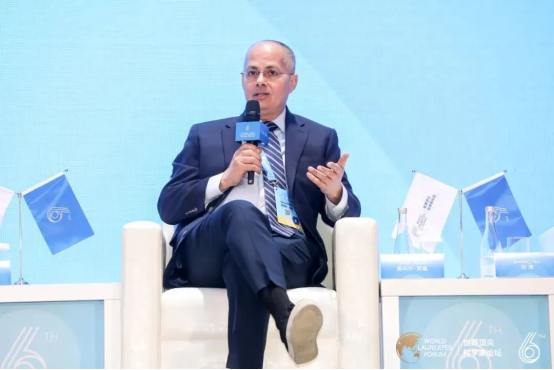
As a leading scientist in the field of international materials design, Yaghi is a prominent figure in carbon capture. He stated, “I am confident that chemistry can solve the problem of carbon dioxide.” This statement also boosted the confidence of the audience, leading more scientists to introduce their “black technologies.”
Zhang Tao, an academician of the Chinese Academy of Sciences and a researcher at the Dalian Institute of Chemical Physics, presented a keynote speech on “Single-Atom Catalysis.”
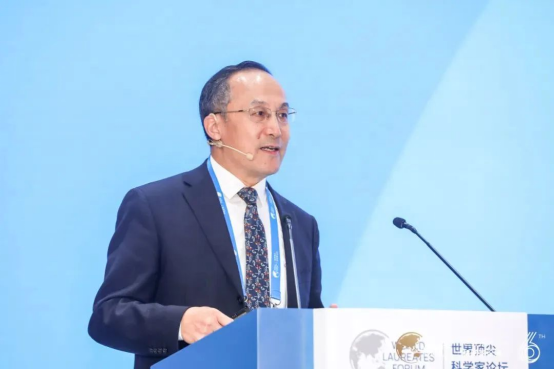
Philip G. Jessop, a 2013 Enel New Frontiers Hydrocarbons (Upstream) Prize winner and professor of chemistry at Queen’s University, began his presentation on “Carbon Conversion Materials Research” with the premise, “Suppose you have a bucket of contaminated water.”
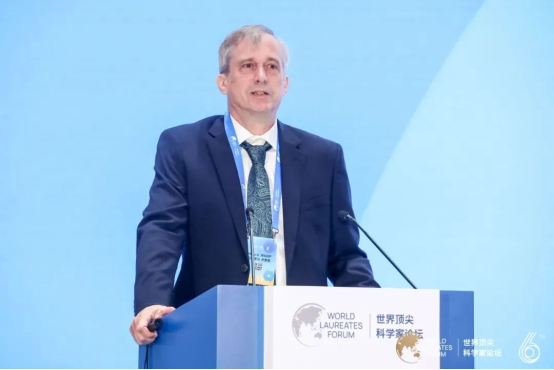
“The energy that the sun irradiates onto the Earth in one year is equivalent to approximately 8 trillion barrels of crude oil, which exceeds the total global consumption of crude oil.” Bao-Lian Su, an academician of the Royal Academy of Belgium, a member of the European Academy, a professor at the University of Namur, and a strategic scientist at Wuhan University of Technology, decided to return to nature, exploring photonic crystals starting from the physical structure of butterfly wings, bringing us “new ideas and concepts to support the dual carbon goals.”
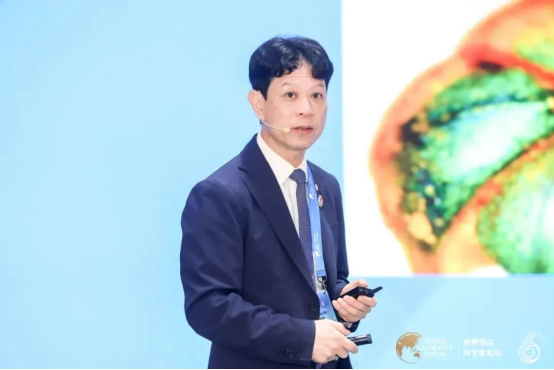
Gregory Stephanopoulos, a 2011 Enel Renewable and Unconventional Energy Prize winner and named professor of chemical engineering and biotechnology at MIT, expressed that the various methods discussed by scientists are very promising. “If we consider the technologies everyone is developing, I believe there is indeed a lot of potential.” However, people must recognize that the dual carbon issue is “very complex and has many dimensions.”
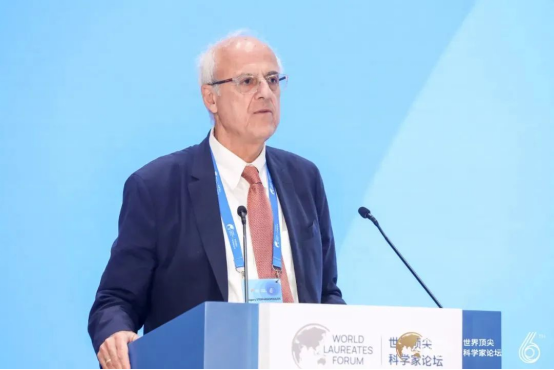
Omar Yaghi suggested that we should “form a united front with the ambition of landing on the moon.” Moderator Lu Xi proposed that future Zero Carbon Forums should invite scholars from sociology, economics, and other fields to seek solutions from various perspectives.
The carbon issue needs to be comprehensively considered from scientific, technological, policy, and support system aspects. As He Kebin summarized, “The carbon issue is part of the climate issue, and the climate issue is part of the sustainability issue.”
Climate Change: Current Climate Change “Unprecedented in Thousands of Years”
The thematic forum “Science Leading Climate Change—Science Promoting Climate Resilience Development” was co-chaired by Zhou Tianjun, deputy director and researcher at the Institute of Atmospheric Physics, Chinese Academy of Sciences, and Yang Peidong, a 2015 MacArthur Fellow, distinguished professor of energy at the University of California, Berkeley, and professor of chemistry, who is regarded as a strong candidate for the Nobel Prize.
Today, in addition to frequent wildfires, symptoms of climate issues such as heavy rainfall and heat storms have emerged globally. Zhou Tianjun expressed concern, stating, “Recent climate change is widespread, rapid, exacerbated, and unprecedented in thousands of years.”
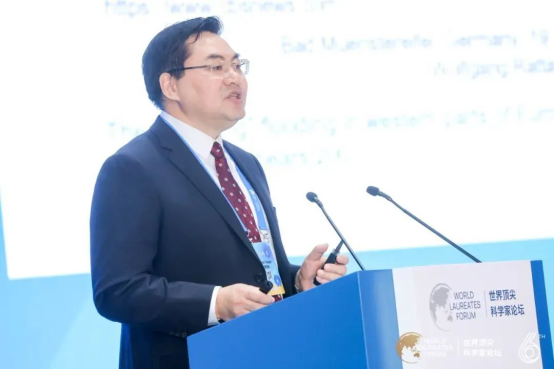
In this context, Zhang Qinghong, a professor in the Department of Atmospheric and Oceanic Sciences at Peking University, director of the International Coordination Office of the World Meteorological Organization’s High-Impact Weather Research Project (HIWeather), and secretary-general of the WMO’s World Weather Research Programme (WWRP) China Committee, hopes to encourage the public to use widely available smartphones to “collect higher-resolution data in environmentally friendly ways” and participate in climate observation and prediction.
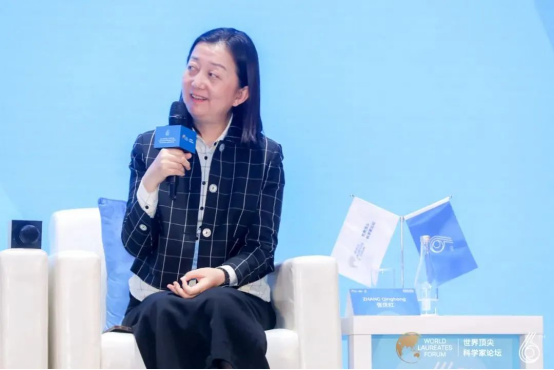
Graham Farquhar, a 2017 Kyoto Prize winner and distinguished professor at the Australian National University, took a cautious stance, saying, “A butterfly flapping its wings in Brazil could change global precipitation patterns.” He used the butterfly effect to illustrate the unpredictability of the entire climate system.
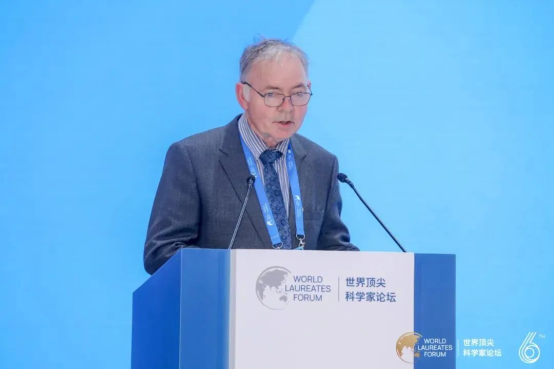
Scientists attending the conference also contributed solutions to climate issues from their respective fields. Paul Chirik, a 2019 Enel Advanced Environmental Technology Prize winner and named professor at Princeton University’s Frick Chemical Laboratory, suggested “reimagining the periodic table of elements,” as scarce elements pose challenges for sustainable development. He aims to fully utilize the Earth’s abundant transition elements through new technological means.
Richard Zare, a 2005 Wolf Prize winner and named professor of chemistry at Stanford University, shared the latest advancements in “achieving sustainable living through ‘microdroplet’ technology,” a field he has focused on in recent years with fruitful results. He believes, “If we can solve methane in the atmosphere, we can effectively address climate issues.”
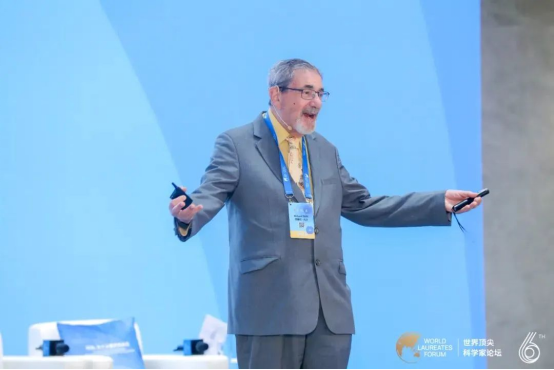
This thematic forum also held a roundtable discussion, where global scientists engaged in extensive and in-depth discussions on topics ranging from climate policy to technological development, and from chemistry to physics, which will greatly benefit the resolution of climate issues.
Energy Transformation: Science Will Always Be with Humanity
The world is currently undergoing a major trend of energy transformation. The core of long-term energy policy is to accelerate energy transition, and finding energy sources beyond oil has become crucial. This is also the main topic of the thematic forum “Science Leading Energy Transformation—Energy Transition and Green Development.”
One of the co-chairs of this forum, Li Zheng, dean of the Institute of Climate Change and Sustainable Development at Tsinghua University, professor in the Department of Energy and Power Engineering at Tsinghua University, and secretary-general of the World University Climate Change Alliance, hopes to “navigate energy towards a green transition” and proposes comprehensive green solutions through international cooperation.
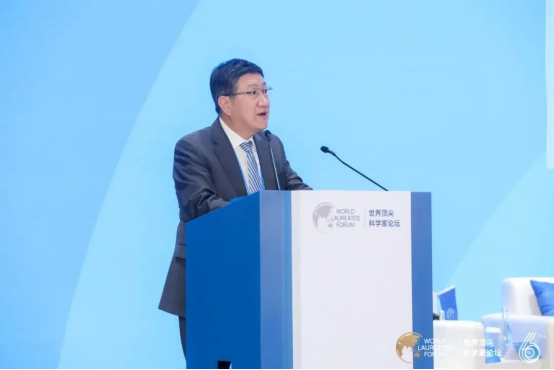
One of the co-chairs of the forum, Professor Michael Grätzel, a recipient of the 2012 Einstein World Science Prize and the 2010 Millennium Technology Prize, and the director of the Photonics and Interfaces Laboratory at École Polytechnique Fédérale de Lausanne, introduced the progress of the photovoltaic industry with the topic “Energy Beyond Oil.”
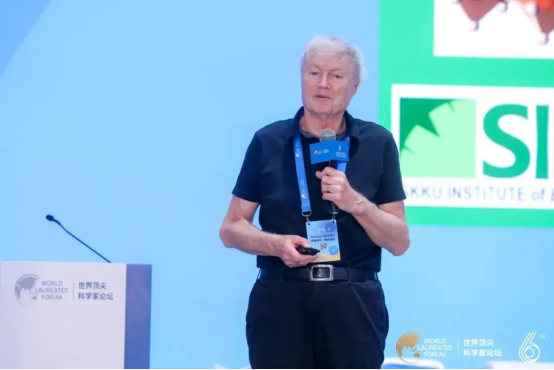
“We cannot completely replicate the chemical reactions of nature.” He started from the molecular level and detailed the development of perovskite solar cells by his team, noting that the materials and costs required for this technology are significantly lower than those for silicon-based photovoltaic cells. As one of the ten most cited chemists in the world, Professor Grätzel is seen as a “Nobel Prize candidate.”
Academician Sun Licheng from the Chinese Academy of Sciences, a chair professor at Westlake University and the director of the Center for Artificial Photosynthesis and Solar Fuels, is an expert in the field of artificial photosynthesis. He introduced an approach his team is exploring to replicate the natural process of hydrolysis to produce solar fuels. After continuous adjustments, his team has gradually achieved results that even surpass those found in nature. He stated, “These advancements give us hope for how to achieve industrial-scale production of solar panels in a very cost-effective manner during the energy transition.”
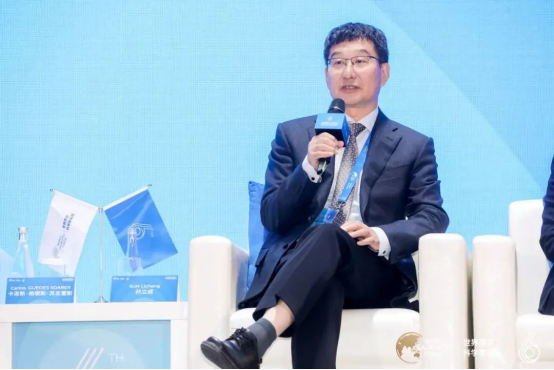
Sang Yup Lee, Vice President of the Korea Advanced Institute of Science and Technology and a recipient of the 2018 Eni Award for Advanced Environmental Technologies, looked ahead to achieving net-zero emissions from the perspective of his research in the field of biofuels. He believes that in the future, “at least a quarter of the chemical industry will be based on biomass.” Humanity has little choice left, as we can no longer rely on fossil fuels.
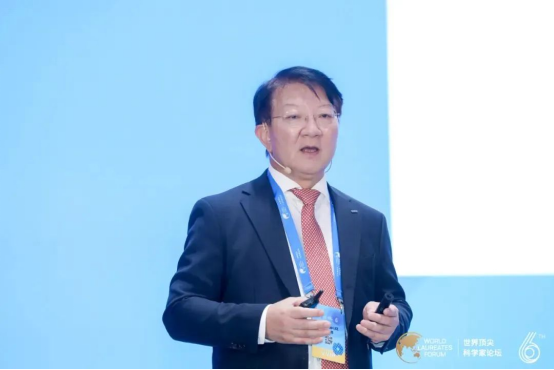
Academician Yulong Ding, a fellow of the Royal Academy of Engineering and the first Chamberlain Professor at the University of Birmingham, began his speech by asking, “What should the fields of science and engineering do? What are the respective roles of scientists and engineers?” This led to his sharing of research results in energy storage technology.
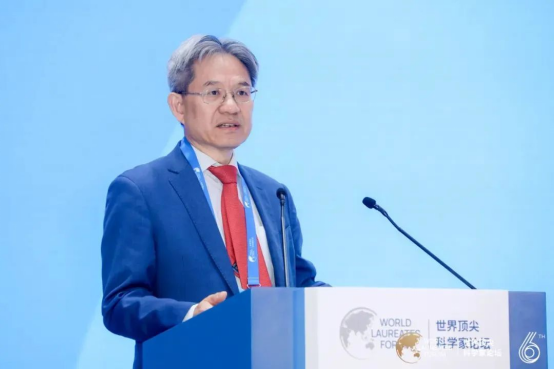
The forum also invited nearly ten global scientists for a roundtable discussion, further exploring solutions for energy transition, from cutting-edge technological research to the formulation of public policies. Facing increasingly urgent challenges, Professor Li Zheng believes that “science will always be with humanity.”
Blue Transformation: WLA and ONCE Sign Cooperation Agreement, Demonstrating Commitment to Carbon Neutrality
The vast ocean signifies inclusiveness. Covering nearly three-quarters of the Earth’s surface, it stores 93% of the planet’s carbon dioxide. “Storing carbon in the ocean is negative emissions. If the positives and negatives balance to zero, we achieve carbon neutrality.” At the special forum titled “Science Leading Blue Transformation—Marine Pathways Supporting Carbon Neutrality,” one of the co-chairs, Academician Jiao Nianzhi from the Chinese Academy of Sciences, chair professor at Xiamen University, and co-chair of the Global ONCE initiative, introduced the ONCE project he leads. This ambitious plan views the ocean as a vast carbon sink and has received positive responses from 78 research institutions across 33 countries in representative regions of America, Europe, Asia, and Africa.

During the forum, the Ocean Negative Carbon Emissions Program (ONCE) held a grand signing ceremony for cooperation with the World Laureates Association (WLA). This marks WLA’s long-term planning and commitment to deepening efforts in the dual carbon field.
Humanity still knows very little about the ocean, which also means infinite potential.
At the forum, scientists shared many cutting-edge explorations of “blue transformation.” Another co-chair of the forum, Professor Martin Landro from the Norwegian University of Science and Technology, pondered “how to achieve gigaton-scale carbon sequestration on the seabed.”
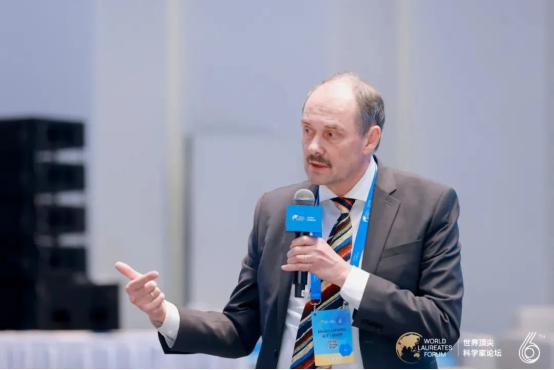
Wang Zhonglin, a recipient of the 2018 Eni Award for Frontier Energy and the 2019 Einstein World Science Prize, and the director and chief scientist at the Beijing Institute of Nanoenergy and Nanosystems, is working on a nanogenerator project that represents a future of “blue energy.”
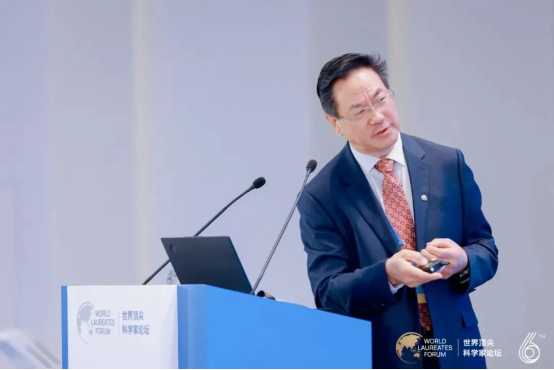
Jean-Pierre Gattuso, a research professor at the French National Centre for Scientific Research and a professor at Sorbonne University, shared his latest research on “the ocean as a solution for climate change mitigation and adaptation.”
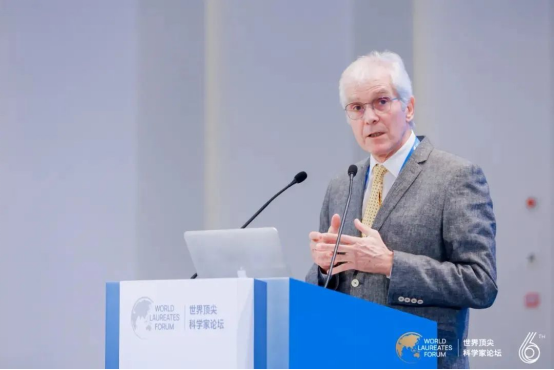
“The mechanisms of deep-sea snow processes are still unclear.” Gerhard Herndl, head of the Department of Biological Oceanography and Marine Biology at the University of Vienna, focused on the enchanting white snow-like formations on the seabed, which are actually deep-sea microorganisms that can significantly fix nitrogen.
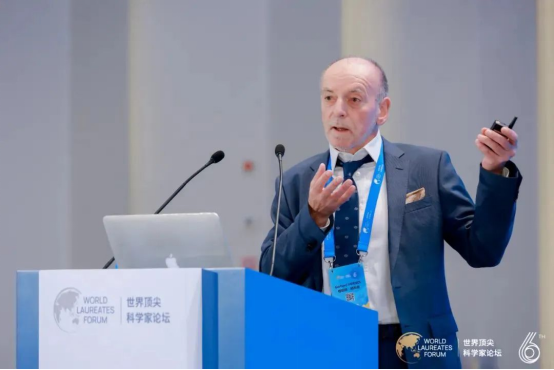
Curtis Suttle, a professor at the University of British Columbia, has conducted extensive research on viruses in the ocean, stating that viruses also play an important role in ocean carbon sequestration.

Fang Jiasong, director of the Shanghai Abyssal Science and Engineering Technology Research Center and a distinguished professor at Shanghai Ocean University, likened the mysterious deep sea to a “power station,” hoping to enable generations to enjoy the benefits of the ocean through a “planet-scale DOME project.”

Carbon Measurement Transformation: Bridging the Global “Carbon Gap,” Shanghai at the Forefront
Dedicated to breaking the global “carbon gap,” this year’s Zero Carbon Forum established the theme forum “Science Leading Carbon Measurement Transformation—Scientific Carbon Measurement Opening the Path to Precise Carbon Neutrality.”
Wynand Louw, chairman of the International Committee for Weights and Measures and director of the South African National Metrology Institute, and the president of the Chinese Academy of Metrology Science, along with the director of the National Time Frequency Research Center and the National Standard Material Research Center, jointly served as co-chairs of this forum.
Top global scientists, academicians from China’s two academies, and representatives from international organizations, the “strongest brains” in global metrology, addressed the challenges of “carbon measurement” on the path to carbon neutrality. They elaborated on exclusive viewpoints and provided solutions from various angles, including the CIPM (International Committee for Weights and Measures) 2030+ strategy and precise carbon measurement planning, practical applications of carbon measurement technology, and innovative implementation of carbon measurement systems. They collectively discussed how to design scientific carbon measurement methods and universal assessment standards that are systematic, accurate, comparable, and consistent, and shared the latest developments, results, and policy insights in the field of carbon measurement with research institutions and enterprises present.
During the forum, a ceremony was held to unveil the “Shanghai Carbon Measurement Technology Committee,” and the “Shanghai Initiative: Empowering Carbon Measurement with Technology, Moving Forward Together to the Future” was released. This forum witnessed Shanghai taking the lead in the global “carbon measurement” field.
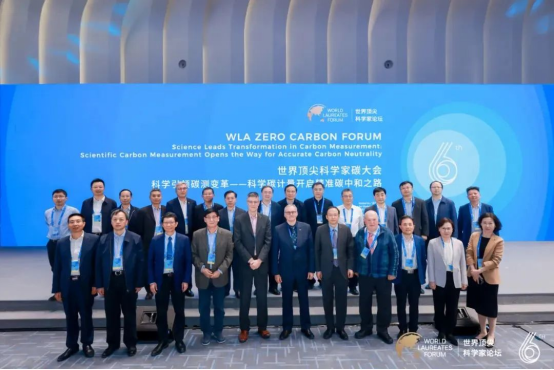
 Latest recommendations
Latest recommendations


